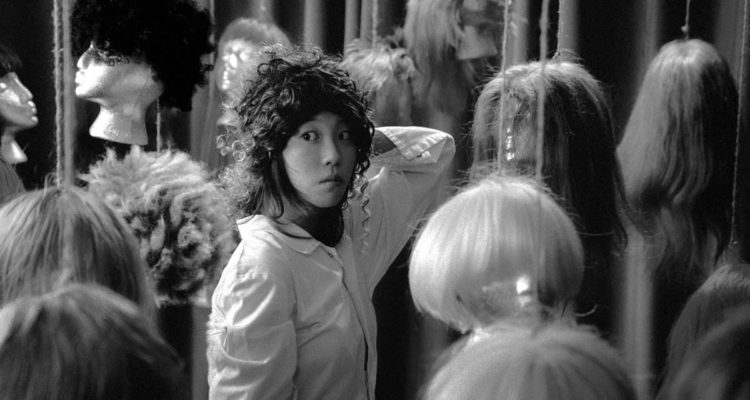Road movies prime their audience to expect the unexpected – part of the point of the genre is for the protagonist’s expectations to be thwarted and for their journey to take a few extra twists and turns along the way. “Bipolar” takes this tendency to an extreme, with a protagonist so open to chasing new whims that it’s impossible to predict what might be happening in ten minutes, let alone by the end of the film. While the breakneck pursuit of the new and different can be jarring, eventually, we learn it’s a coping mechanism for overcoming loss, and audiences that can relate to the film and keep moving forward will be rewarded with a freewheeling and scenic journey of healing across the immensity of China.
READ MORE: Summer 2021 Preview: Over 50 Movies To Watch
Arriving in Lhasa, Tibet for a pilgrimage, Kun’s (Leah Dou, daughter of Cantonese pop superstar Faye Wong) trip goes off track as soon as she steps into her hotel’s ornate lobby, where, in a jeweled tank with a light display, she sees the sacred rainbow lobster. The lobster, with its bright colors and myth of releasing others from pain, captivates her. To Kun, a pop singer in the throes of grief, there’s something about the alien creature trapped and gawked at in a tank that speaks to her. Beijing Film Academy alum and director Queena Li help the audience feel the lobster love too, with a charming sequence from the lobster’s POV showing its baffling journey from the ocean to a tank in Tibet. Abandoning the pilgrimage, Kun cements their kinship by liberating the lobster and hitting the road, trying to return the lobster to its supposedly sacred home at the Ming Island lighthouse.
READ MORE: The 100 Most Anticipated Films Of 2021
Once on the road, “Bipolar” operates by a more is more philosophy, for better or for worse. Traveling by intuition, Kun meets a wise teenage monk, an urbane wig collector, shadowy military figures, and many more, with a variety of visual styles to match. On the one hand, it fits for a story of a long journey to feel overstuffed, as if there was too much of import to include everything. The downside of this method is the audience begins to question the intentionality of the events if there’s a character-based reason for what’s happening. Li also intersperses flashbacks to Kun’s traumatic past throughout the film, but unfortunately the flashbacks are too reliant on shock value and self-conscious stylistics to add much depth to Kun’s emotional state. The film is stronger when it retains its forward momentum, pushing forward to the next oddity, allowing Kun’s state of mind to reveal itself through conversation and observation.
“Bipolar” is shot in sumptuous black and white, with a few unforgettable compositions, from the lavish lobster display to a dancer swelling behind a veil of silks. A road movie is an ideal way to showcase the vastness and variety of China, although one might wish for color to view the landscapes. Kun’s lobster might not be sacred after all, but it proves a wonderful traveling companion. In their surprisingly affecting farewell, we realize that their journey did help release Kun from pain. Anchored by a strong lead presence in Dou and an endless variety of new encounters, “Bipolar” is a chaotic but rewarding journey of healing and discovery. [B+]

